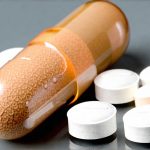Urinary tract infections (UTIs) are incredibly common, particularly among women due to anatomical factors. Many women experience at least one UTI in their lifetime, often recognizing the frustrating symptoms—a burning sensation during urination, frequent urges to go, and a general discomfort that can disrupt daily life. While severe UTIs require prompt medical attention and antibiotic treatment, mild UTIs, characterized by less intense symptoms localized primarily to the bladder (cystitis), may be manageable with supportive home care strategies while closely monitoring for any worsening signs. It’s crucial to understand the difference between a mild UTI and one that has spread to the kidneys, as kidney infections are far more serious and necessitate immediate medical intervention. This article explores methods women can use to support their body’s natural defenses and alleviate discomfort during a mild UTI, emphasizing self-assessment and when professional help is absolutely required.
This isn’t about replacing a doctor’s visit; it’s about empowering you with knowledge to potentially ease symptoms while deciding on the best course of action. It’s important to remember that these home remedies are supportive measures—they can help manage discomfort, but they aren’t cures. They aim to create an environment less hospitable for bacterial growth and support your body’s immune response. Always prioritize listening to your body and seeking medical attention if symptoms don’t improve or escalate. Self-treating a UTI that has progressed beyond the bladder can lead to complications and long-term health problems, so caution and awareness are paramount. Consider how you might adapt your home to support symptom management.
Hydration and Dietary Adjustments
Staying well-hydrated is arguably the most important step when dealing with a mild UTI. Water helps flush bacteria out of the urinary tract, reducing their concentration and hindering their ability to adhere to the bladder wall. Aim for at least eight glasses of water daily, and even more if you’re active or live in a warm climate. Don’t substitute sugary drinks, caffeine, or alcohol for water; these can irritate the bladder and worsen symptoms. Consider incorporating herbal teas known for their diuretic properties, like dandelion tea (check with your doctor if you have kidney issues before consuming).
Beyond simply increasing fluid intake, paying attention to what you drink matters. Cranberry juice has long been associated with UTI prevention, although its effectiveness is debated. Unsweetened cranberry juice may help prevent bacteria from adhering to the bladder wall, but it won’t kill existing bacteria. The high acidity can also be irritating for some individuals. Similarly, avoid citrus juices and other acidic beverages if you find they exacerbate your symptoms. Focus on water as your primary source of hydration, supplementing with herbal teas or unsweetened cranberry juice in moderation if tolerated. You may find relief from establishing a home routine focused around these practices.
Dietary adjustments can further support recovery. Reducing sugar intake is vital, as sugar feeds bacteria. Incorporating foods rich in Vitamin C may help boost the immune system and create a more acidic environment within the urinary tract – although this should not be considered a substitute for medical treatment. Foods like bell peppers, strawberries, and oranges are good sources of vitamin C. Probiotic-rich foods such as yogurt (with live cultures) can also support gut health, which plays a role in overall immune function. A balanced diet rich in nutrients is crucial for supporting your body’s natural defenses.
Boosting Immune Function Naturally
A robust immune system is your best defense against infection. While home remedies won’t eliminate a UTI on their own, strengthening your immunity can help your body fight it off more effectively. Prioritize sleep – aim for 7-8 hours of quality rest each night. Chronic stress weakens the immune system, so incorporate stress-reducing activities into your routine. These could include yoga, meditation, deep breathing exercises, or simply spending time in nature.
Consider supplements that support immune function, but always consult with your doctor before starting any new supplement regimen. Vitamin D and Zinc are known to play important roles in immune health, and deficiencies can compromise the body’s ability to fight off infection. However, taking excessive amounts of these vitamins can be harmful. A balanced approach is key. Remember that supplements are meant to supplement a healthy lifestyle, not replace it. Taking time to create a recovery zone can help prioritize these practices.
Finally, regular exercise – moderate intensity is best – improves circulation and boosts immune cell activity. Avoid strenuous exercise during an active UTI as it may exacerbate discomfort. Listen to your body and rest when needed. Maintaining a holistic approach to health—adequate sleep, stress management, nutrient-rich diet, and regular exercise—is essential for bolstering your immune system and supporting recovery from a mild UTI.
Pain Management Strategies
The burning sensation during urination is often the most distressing symptom of a UTI. Several home remedies can help alleviate this discomfort temporarily. Over-the-counter pain relievers like ibuprofen or acetaminophen can provide some relief, but always follow dosage instructions carefully. A warm bath—avoiding harsh soaps or bubble baths—can soothe irritated tissues and reduce pelvic discomfort.
Soaking your feet in warm water can also be surprisingly effective for reducing overall discomfort. Applying a warm compress to the lower abdomen may help ease cramping or pressure. Another option is using urinary pain relief tablets containing phenazopyridine (Azo), which specifically target bladder and urinary tract irritation, providing temporary numbing relief. However, these tablets only mask symptoms; they do not treat the underlying infection and can interfere with accurate urine testing for diagnosis. Always inform your doctor if you’ve taken these tablets. Monitoring side effects of any medication is critical, even over-the counter options.
When to Seek Medical Attention – Red Flags
It is absolutely vital to understand when home remedies are no longer appropriate, and professional medical attention is required. Do not attempt to self-treat a UTI if you experience any of the following symptoms: – Fever (100.4°F or higher) – Chills – Back pain or flank pain (indicates potential kidney infection) – Nausea or vomiting – Blood in your urine – Increased pain or discomfort that doesn’t improve after 2-3 days – A history of frequent UTIs, especially if they are becoming more severe – If you are pregnant.
These symptoms suggest the infection may have spread beyond the bladder, potentially leading to a kidney infection (pyelonephritis), which is a serious medical condition requiring immediate antibiotic treatment. Kidney infections can cause permanent damage and even lead to sepsis. Never hesitate to seek medical attention if you’re concerned about your health. A healthcare professional can accurately diagnose your condition, prescribe appropriate treatment, and ensure the infection is fully resolved. Remember that early intervention is key to preventing complications and maintaining long-term urinary health. Proper posture at home can also support overall wellness during this time, and beyond. You should also remember how to store medications safely.





















